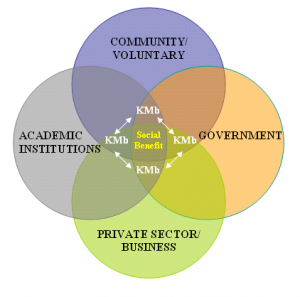SSHRC’s Connection Grants support events and outreach activities geared toward short-term, targeted knowledge mobilization initiatives. These events and outreach activities represent opportunities to exchange knowledge and to engage on research issues of value to those participating.
Amount: $7,000 – $50,000 (potentially higher amounts)
Matching Funds: SSHRC will not fund the full cost of any connection event or outreach activity. Additional support in the form of cash and/or in-kind contributions (excluding registration fees), equivalent to a minimum of 50 per cent of the amount requested from SSHRC, must come from sponsoring organizations.
Deadlines:
Brescia Research Officer:
3-4 weeks for institutional support request (funds and letters of support)
1 week for proposal review and feedback
SSHRC:
Deadline Decision Date
May 1, midnight (eastern time) June 30
August 1, midnight (eastern time) September 30
November 1, midnight (eastern time) December 31
February 1, midnight (eastern time) March 31
Description: Connection Grants support workshops, colloquiums, conferences, forums, summer institutes or other events or outreach activities that facilitate:
- Disciplinary and/or interdisciplinary exchanges in the humanities and social sciences;
- Scholarly exchanges between those working in the social sciences and humanities and those working in other research fields;
- Intersectoral exchanges between academic researchers in the humanities and social sciences and researchers and practitioners from the public, private and/or not-for-profit sectors; and/or
- International research collaboration and scholarly exchanges between researchers, students and non-academic partners from other countries.
Eligibility: Applicants must hold an eligible academic research appointment at Western.
Note these updates to the program:
Applicants can have whatever combination of cash or in-kind they can confirm from sponsoring organizations. i.e. support from the sponsoring organization can now be entirely in-kind, provided it is justified and calculated using the appropriately.
The maximum value for a SSHRC Connection Grant is now dependent on whether it is an “event” Connection Grant only OR if it is a Connection Grant with “outreach activities”.
“Event” Connection grants are a maximum of $25,000 over one year. (Minimum$7,000 and maximum is $25,000).
Connection grants with “outreach activities” are a maximum of $50,000. (Minimum $7,000 and maximum is $50,000).
SSHRC is willing to consider amounts higher than $50,000, although such applications must satisfactorily justify the need for the higher amount, as well as provide evidence that the entire award can be managed within the one-year time frame.
There is now a restriction on the number of applications per year. As of June 18, 2014, “An applicant may apply for one Connection Grant per calendar year. An applicant may not apply for or hold more than one Connection Grant for the same event or outreach activity.” Please refer to SSHRC’s regulations regarding multiple applications for more information.
Applicants may draw on complementary funding from SSHRC research grants and/or other research funding agencies, but must make clear in their budget proposal that there is no duplication of financial support for the same budget expenses. While SSHRC funds may be used in this complementary way, these funds cannot be counted towards the 50 per cent requirement for matching funds.
Application instructions: SSHRC Connection Grants



